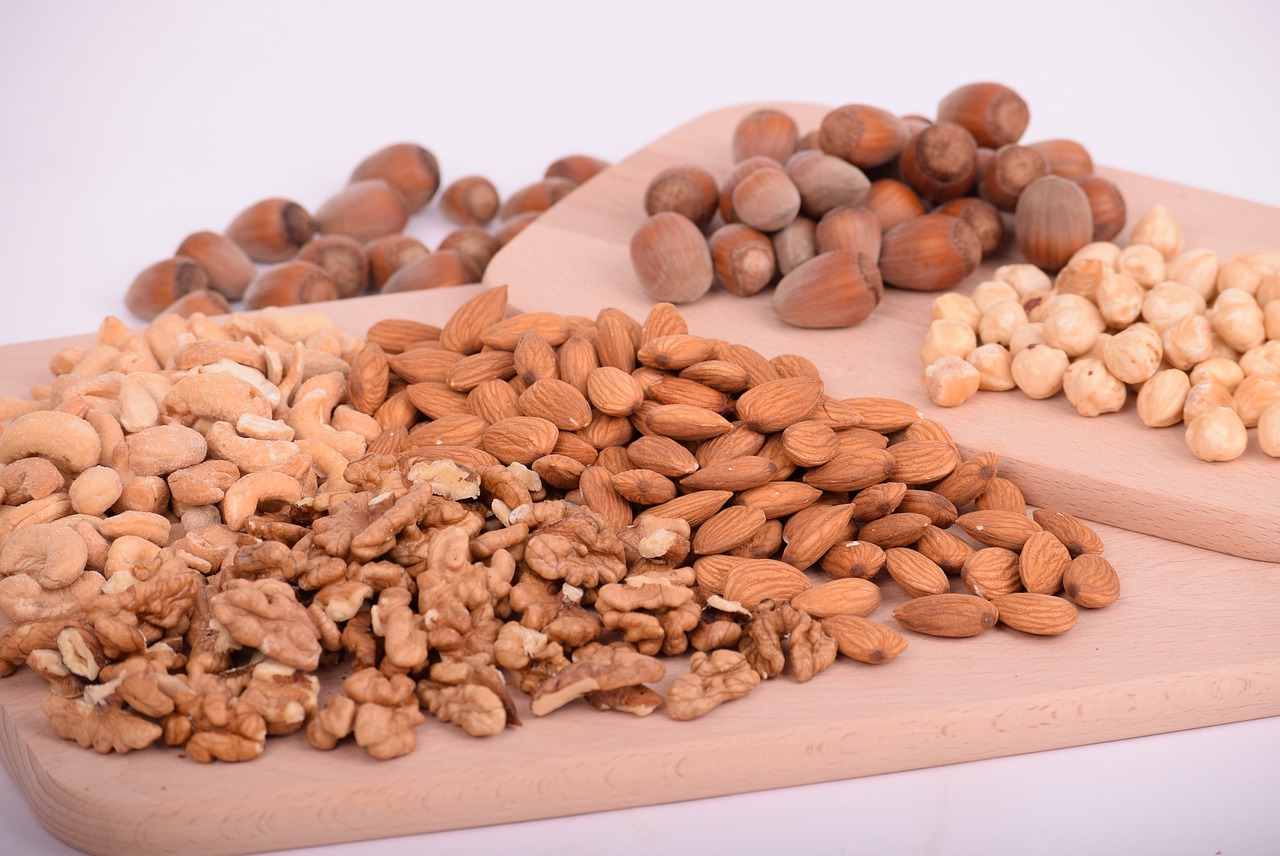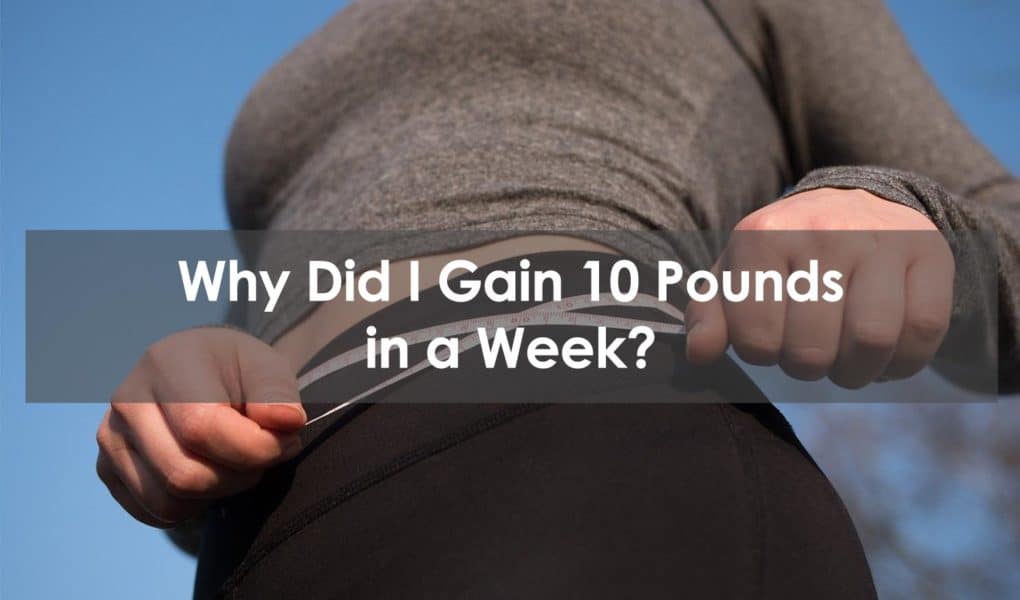You’re trying to lose weight. You think you’re doing everything right – exercising, watching what you eat, and drinking water. But then you hop on the scale to discover that not only have you not lost any weight, but you’ve also actually gained 10 pounds in the last week!
Talk about frustrating!
In this article, I’ll uncover a variety of reasons that you’d put on 10 pounds of unexplained weight gain in a week – and what you can do about these factors for weight gain.
Muscle Gain
The scale can tell you what your raw weight is. But it cannot tell you how much of that weight is fat and how much is muscle (your body composition). If you are working out with weights, you will be adding muscle tissue to your body. Even a small addition of muscle mass can show up on the scale. That is because muscle tissue is 5 times more dense than fat.
If you lose 5 pounds of fat and gain 2 pounds of muscle, then your weight on the scale will go up, even though you have lost body fat. So part of your 10-pound weight gain in a week could be down to the fact that you have added muscle tissue to your physique.
Eating Too Much

So, you’ve switched over from an unhealthy to a healthy diet. That’s fantastic. But if you are eating too much of that healthy food, you are still going to gain weight. Many people think that, so long as it’s healthy food, they can eat as much of it as they want. But nothing could be further from the truth. Excess food means excess unwanted weight gain.
Gaining extra weight is a matter of calories in versus calories out. Many healthy foods, such as nuts, are calorie-dense. If you end up having taken excess calories than you have burned off, you will gain weight. Eating an extra 1000 calories per day, even it is the healthiest food on the planet, will see you weighing several pounds more at the end of the week as a result of those extra calories.
Build a balanced diet around nutritious foods such as whole-grain carbs, lean meats, and healthy fats. Avoid crazy fad diets, high glycemic index carbohydrate-based foods, and junk food and replace sugary drinks with diet soft drinks and water to avoid weight creep.
Drinking Too Much

A lot of people tend to forget that calories come from what we drink as well as what we eat. Smoothies, mochaccino, and lattes can add hundreds of calories. Alcohol is even worse. One gram of alcohol contains 7 calories, compared to just 4 calories for a gram of carbohydrate. So, if you have one binge-drinking night per week, you could very easily be consuming more than a thousand calories to your body. That calorie surplus will cause excess weight gain.
Another thing that can lead to excessive weight gain is soda drinks. These are loaded with sugar. When you drink them, you will be setting up an insulin cycle that will lead to carb cravings and even more sugar intake. If you have to drink a soda, go for the zero sugar varieties.
Too Much Exercise

Even though it is a factor for weight loss, too much exercise can also cause sudden weight gain. Some recent research has revealed that people who spend an excessive amount of time working out tend to eat more than those who work out less. The reason seems to be that excessive trainers have a tendency to overestimate how many calories they burn through exercise. They then eat too much as part of their post-workout meal.
Some people may also rationalize that they can have the odd blueberry muffin because they’ll burn it off on the treadmill later that day. What they may not realize is that it takes about an hour on the treadmill to burn off the calories you will consume from a large blueberry muffin.
While it is great to work out regularly, be sure that you don’t overdo your post-workout meal. Stick to a high-protein shake that delivers less than 200 calories, or simply have a piece of fruit.
Shopping on an Empty Stomach
Do you find yourself doing your grocery and food shopping when you’re rushed and hungry? Maybe you’ve gotten into the habit of fitting in the grocery store after your workout. Neither of these is a good idea.
When you shop while hungry, you will end up buying more food – and more of it will be high-carb indulgence foods. More than likely, you will also end up buying something to satisfy your immediate hunger. After your workout, you are also likely to be hungry. So, it’s not a good idea to do your weekly shopping trip after your exercise routine.
Before you head out to do your grocery and food shopping, you should have a healthy snack. I recommend a simple protein snack like a hard-boiled egg or a piece of toast with peanut butter on it.
Portions Are Too Large
Over the last 50 years, the size of dinner plates in the United States has increased by 30 percent. Most of us have a tendency to eat everything that’s on the plate. It’s no wonder, then, that people are about 30 percent heavier than they were 50 years ago.
As previously pointed out, even healthy food intake is going to make you gain weight if you eat too much of it. By cutting down your portion sizes, you will reduce your calorie intake and lose weight. I recommend buying a new set of dinner plates that are 30 percent smaller than the ones you now have to aid weight loss.
Conclusion
Stepping on the scale and seeing that you’ve added 10 pounds can be a very frustrating experience. In this article, we’ve identified the main reasons that sudden weight gain may have happened. Make the changes, apply the tips provided, consistently eat a balanced diet, and exercise for health and you will be able to correct the weight gain and maintain your ideal weight.
Frequently Asked Questions
Is it normal to fluctuate 10 pounds in a week?
While some weight fluctuation is normal, a fluctuation of 10 pounds is a little excessive. Overnight weight gain can be the result of water retention, changes in metabolism, and the timing of meals. People weigh different amounts at different times of the day, too. Be sure to weigh yourself at the same time every day in order to avoid water weight fluctuations.
What is the best way to lose weight long term?
The best way to lose extra pounds long-term is to combine a calorie-reduced diet with a combination of strength training and high-intensity interval training. Reduce your daily caloric intake by 500 calories per day, cutting out high glycemic index carbs and building your meals around lean protein. Do a full-body strength training fitness routine two times per week. On three other alternate days, do high-intensity interval training, either by sprinting on a field or running on a treadmill.







